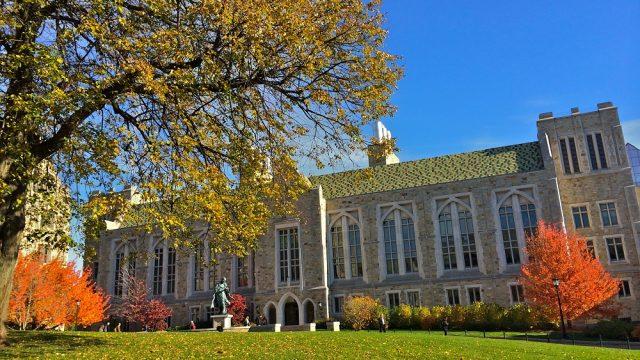Over 400 seats will be added to Boston College’s core pilot courses next academic year, which will allow 1,083 students to enroll in the experimental classes. The pilot courses were offered to 350 first-year students during the 2015-16 academic year. That number was increased to 750 students for the 2016-17 academic year.
The core pilot courses were created in 2012 when an outside agency called Continuum was brought in to help BC update its core. Julian Bourg, the associate dean for the core, said that students previously treated the pre-existing core classes as boxes to check off, and did not actually take an interest in the subject matter. The purpose of creating these core pilot courses was to implement a more likable way for students to complete their core requirements.
Continuum suggested that BC overhaul the current core with the core pilot classes. The original proposal created seats for every freshman. University President Rev. William P. Leahy, S.J. and other top administrators did not want to make that change so quickly, Bourg said. Instead, they wanted to slowly expand the course, monitoring student feedback along the way.
This semester, when registration for core classes opened to first-year students, fewer freshmen registered for these classes than expected. As a result, the classes were opened to sophomores on Monday. If the seats do not get filled by enough sophomores, the classes will be opened to juniors.
The Complex Problems classes, which each seated 76 students last year, increased to 152 students this year. These classes were not being filled by freshmen like Bourg expected.
“With any new experiment, there’s turbulence when you take off the runway,” Bourg said.
Seats were also filled by sophomores in August for the first semester’s core pilot courses.
Despite the lack of seating, the core pilot courses will still expand another 400 seats next academic year as planned. Decisions to create classes are made a year in advance, which limits decision-making based on student feedback for administrators.
The feedback Bourg receives from students derives from surveys sent out to students who took the classes and focus groups moderated by professors who teach the classes.
In a report published by the program, it was stated that there was an overall positive response from students and faculty about content and intellectual engagement. Faculty particularly noted that the small Enduring Questions classes supported engagement and reflection by students. They also noted that students were actively involved in the class, in contrast to a “check this off the list of requirements” attitude that students have when taking the average core class.
Students were unhappy about the workload of the classes and said that it was significantly more than for other core classes worth the same number of credits. The report also noted that it will be difficult to find faculty members to teach these courses as the program expands.
Bourg has heard mostly positive feedback from students and professors.
“[The] faculty are really pleased with the level of student engagement and intellectual awareness, and the students are finding these classes transformative and rocking their world in ways other classes are not,” Bourg said.
Featured Image by Margaux Eckert / Heights Staff



















